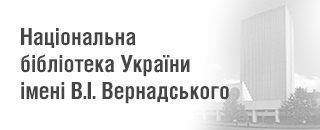THE PROGRAM OF TRAINING THE YOUNG GENERATION IN THE MODERN GEOPOLITICAL REALITIES AND MILITARIZATION PROCESSES OF BUILDING THE NEW UKRAINIAN SOCIETY. PRIMARY, SECONDARY, HIGH SCHOOLS. ESTABLISHMENT OF KNOWLEDGE OF THE BASIC FOUNDATIONS OF NATIONAL SEC
DOI:
https://doi.org/10.31470/2786-6246-2024-7-6-13Keywords:
young generation, educational system, curriculum, national security, state administration, educational institutionAbstract
In the conditions of repelling armed aggression by the Russian Federation against our state, the question of the effectiveness of the educational process in all sections of the educational system became significantly more active. The formation, implementation, and improvement of the model of training the young generation in modern geopolitical realities and militarization processes of building a new Ukrainian society is the state administration's main task in the education field. One of the state administration's key tasks in training the young generation according to the militarization vector of Ukraine’s activities remains the creation of appropriate conditions for the possibility of effective influence on all subjects of the educational process. The article examines the current state of the educational system in the aspect of training the young generation to ensure the national interests of the state. The main drawback in the construction and implementation of a new training program for the young generation in modern geopolitical realities is the lack of a unified approach of the public administration to its management. The article examines the current state of the legislation regulating the educational system on the path of transformation and adaptation to the modern vector of state administration development. Regulation and improvement of the implementation of educational activities in primary and secondary schools is an underestimated aspect of implementing effective state policy in the field of education by the public administration within the framework of laying the foundations of basic knowledge of national security. The article examines the key shortcomings of the educational system during its adaptation to the geopolitical realities around Ukraine. In the context of the implementation of the policy of militarization, there is a risk of violation by the public administration of the prescribed catalog of rights, freedoms, and legitimate interests of citizens. The active participation of the young generation in the system of ensuring the national interests of the state has a multifaceted and upward significance. To ensure the fulfillment of the needs and interests of society, it is the young generation that acts as a safeguard against the violation of basic values by the state. The article examines the role of the young generation during the implementation of a certain state policy.
References
Aliieva, P. (2016). Analiz sutnosti poniattia «derzhavna osvitnia polityka [Analysis of the essence of the concept "state educational policy]. Visnyk Natsionalnoho universytetu tsyvilnoho zakhystu Ukrainy Derzhavne upravlinnia – Bulletin of the National University of Civil Defense of Ukraine Public administration, 1, 1–6 [in Ukranian].
Hilko, O. (2019). Osnovni poniattia i katehorii strukturno-funktsionalnoi pidhotovky upravlinskoho personal [Basic concepts and categories of structural and functional training of management personnel]. Rynkova ekonomika: suchasna teoriia i praktyka upravlinnia – Market economy: modern management theory and practice, 18, 169–183 [in Ukranian].
Dehtiarova, I. (2015). Derzhavne upravlinnia vyshchoiu osvitoiu Slovachchyny: reformy u konteksti yevropeiskoi intehratsii [State management of higher education in Slovakia: reforms in the context of European integration]. Aspekty publichnoho upravlinnia – Aspects of public administration, 7-8, 20–30 [in Ukranian].
Ivanova, S. (2013). Vyshcha osvita Ukrainy yak ob’iekt vplyvu hlobalnykh osvitnikh protsesiv [Higher education of Ukraine as an object of influence of global educational processes]. Imidzh suchasnoho pedahoha – The image of a modern teacher, 6, 9–11 [in Ukranian].
Soloviov, S., Bukhtatyi, O., & Nesterniak, Yu. (2015). Informatsiina skladova derzhavnoi polityky ta upravlinnia [Information component of state policy and management]. Kyiv: K.I.S. [in Ukranian].
Totska, O. (2020). Orhanizatsiini innovatsii naukovoi komponenty sfery vyshchoi osvity Ukrainy [Organizational innovations of the scientific component of the sphere of higher education of Ukraine]. Teoriia ta praktyka menedzhmentu –Theory and practice of management: Proceedings of the International Scientific and Practical Conference (pp. 376–377). Zaporizhzhia: Osvita [in Ukranian].
Totska, O. (2020). Osoblyvosti upravlinnia rozvytkom vyshchoi osvity v krainakh Yevropeiskoho osvitnoho prostoru [The ability to manage the development of higher education in the countries of the European Educational Area]. Sotsialno-kompetentne upravlinnia korporatsiiamy v umovakh povedinkovoi ekonomiky – Socially competent management of corporations in the conditions of behavioral economics: Proceedings of the International Scientific and Practical Conference (pp. 134–138). Lutsk: Derzhavne upravlinnya [in Ukranian].
Khokhlenko, O. (2018). Kontseptualni zasady rozvytku vyshchoi osvity v Ukraini [Conceptual foundations of the development of higher education in Ukraine]. Dictum factum – Dictum factum, 1, 80–82 [in Ukranian].
Chernysh, O. (2018). Kontseptualni zasady stratehichnoho upravlinnia zakladamy vyshchoi osvity [Conceptual principles of strategic management of institutions of higher education]. Ekonomichnyi visnyk Zaporizkoi derzhavnoi inzhenernoi akademii – Economic Bulletin of the Zaporizhzhya State Engineering Academy, 3, 107–108 [in Ukranian].
Chuikova, O. (2016). Vyshcha osvita yak metod likuvannia: vaskuliaryzatsiia,proliferatsiia neironiv ta kohnityvni praktyky [Higher education as a treatment modality: vascularization, neuronal proliferation, and cognitive practices]. Hileia: naukovyi visnyk – Gilea: Scientific Bulletin, 107, 328–332 [in Ukranian].







